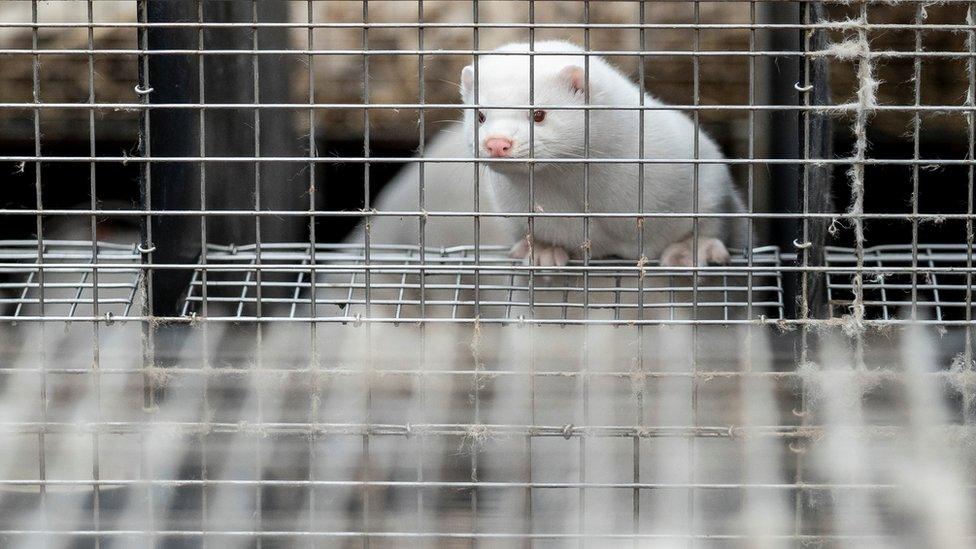Coronavirus: Irish mink farms told animals will be culled
- Published

A "variant" of the virus was detected in mink on a farm in Denmark
Three mink farms in the Republic of Ireland have been told their mink are to be culled to halt a potential spread of a mutated form of coronavirus.
A "variant" of the virus was detected in mink on a farm in Denmark.
Authorities worry that a mutated form of coronavirus found in mink could potentially hamper the effectiveness of a future vaccine.
Ireland's Chief Medical Officer Tony Holohan has said the country's farmed mink population should be culled.
In a letter to the Department of Agriculture, Dr Holohan said the presence of farmed minks presents "an ongoing risk to public health" if the Covid variant found in Denmark was to become "the dominant strain of the virus".
He said all mink should be culled "as a matter of urgency".
Irish national broadcaster RTÉ said there are understood to be no immediate plans to carry out the proposed cull, but officials in the Department of Agriculture have informed farm owners in counties Laois, Kerry and Donegal that it will happen.
There is a already a commitment in the Programme for Government to phase out mink farming in Ireland.
However, it is also understood that the farms will be allowed to 'pelt' the remaining animals to fill outstanding orders.
Pelting is when the skin of the animal is removed after it has been euthanised by the farmers.